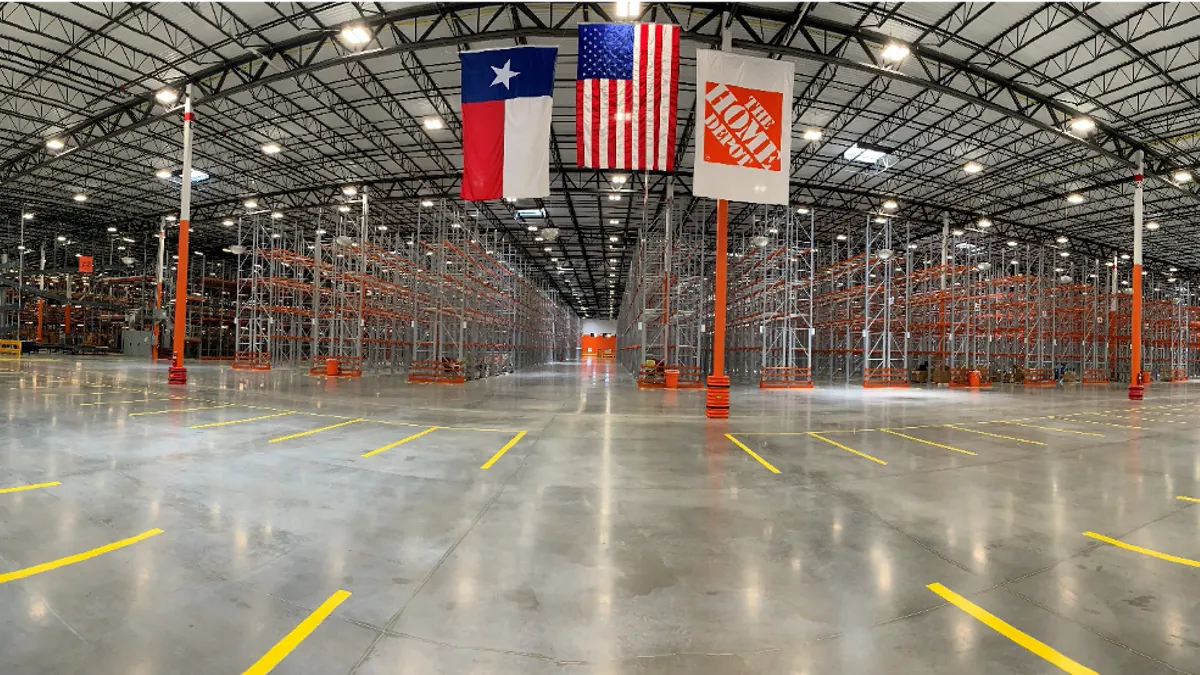Dive Brief:
- The Home Depot is undergoing a $500 million cost savings push that will see the company reduce its supply chain holding capacity, EVP and CFO Richard McPhail said during a June 13 investor and analyst conference.
- The home improvement retailer expects to complete the effort in fiscal year 2024. Savings will focus on reducing fixed operating costs beyond product and transportation expenses that were "built up as a result of the rampant increase in transactions during 2020 and 2021," McPhail said.
- The Home Depot had to expand its supply chain footprint at a higher cost than it wanted in order to handle the surge in demand, the CFO said. "We are now gradually reducing that holding capacity as transactions normalize."
Dive Insight:
After heavy investments in its supply chain over the past few years, The Home Depot is trimming excess warehouse capacity as its sales have fallen from their pandemic-driven heights.
The company is also aiming to save costs in its downstream supply chain, which focuses on delivering directly to customers, by optimizing its forecasting and labor management process and leveraging technology and robotics, EVP of Supply Chain and Product Development John Deaton said at the conference. That push comes as the company has already boosted productivity in its upstream network, which moves product to stores from distribution centers and fulfillment centers, through "further automation and mechanization," he added.
Much of The Home Depot's supply chain spending is still poised to benefit it for the long haul, even with its cost-cutting efforts.
The company began a push in 2017 to reach roughly 90% of the population with next-day or same-day delivery that has since become a competitive advantage, Deaton said. It met this goal through various investments geared toward creating what he called "the fastest, most reliable, and most efficient supply chain in home improvement."
Many initiatives focused on fulfillment and delivery. The company opened more than 100 facilities with enhanced capabilities in those areas over the past five years, Deaton said.
The Home Depot has also targeted improved appliance delivery by managing it in-house rather than using a third-party provider, which Deaton said has reduced complexity and improved customer satisfaction. Further bolstering these efforts, the company acquired Temco, an appliance delivery and installation company that has been one of its largest partners for bringing big and bulky items to customers.
"There are significant opportunities ahead as we differentiate ourselves, particularly with respect to delivery," Deaton said.
This story was first published in our Operations Weekly newsletter. Sign up here.
















